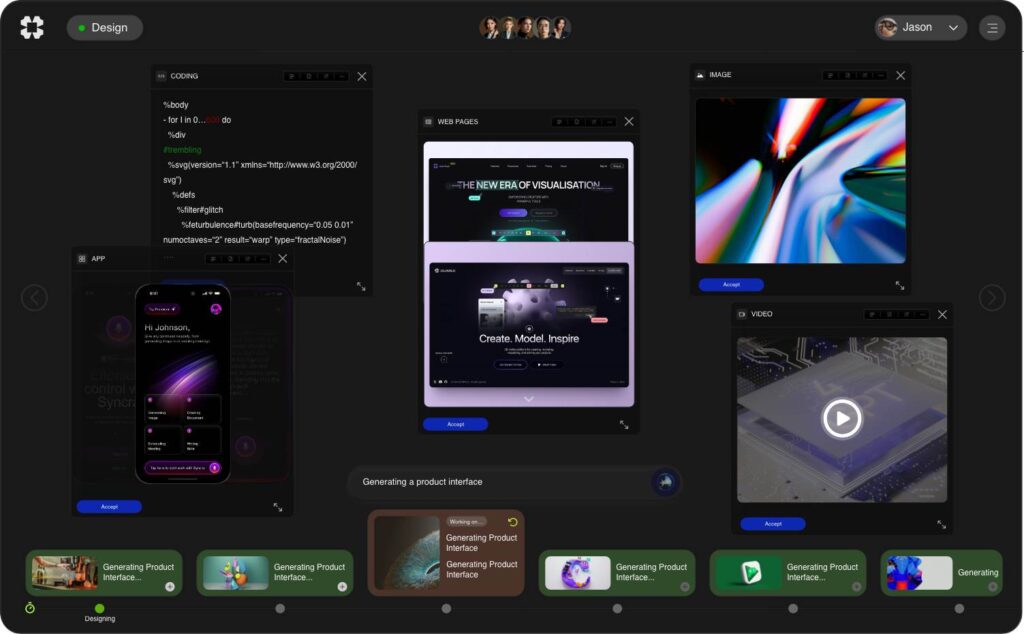In the rapidly evolving landscape of technology, Artificial Intelligence Operating Systems (AIOS) are becoming increasingly pivotal. With their ability to manage resources intelligently, AIOS are paving the way for enhanced performance, especially in demanding environments like 5G networks. One of the key features driving this evolution is smart memory management. This article delves into the intricacies of smart memory management within AIOS, its application in 5G networks, and the implications of zero-trust security in these systems.
Smart memory management refers to the techniques and algorithms used by operating systems to efficiently allocate, track, and optimize memory usage. In AIOS, this becomes crucial due to the high demands placed on memory resources by AI applications. Traditional operating systems often struggle with the dynamic and unpredictable nature of AI workloads, leading to inefficiencies and potential bottlenecks. AIOS addresses these challenges by employing advanced memory management strategies that leverage machine learning and predictive analytics.
One of the most significant benefits of smart memory management in AIOS is its ability to predict memory usage patterns. By analyzing historical data and current workloads, AIOS can allocate memory resources dynamically, ensuring that applications have the resources they need when they need them. This predictive capability not only enhances performance but also reduces latency, a critical factor in real-time applications such as autonomous vehicles and augmented reality.
Moreover, smart memory management can optimize the use of hardware resources. For instance, by intelligently managing memory across multiple cores and processors, AIOS can ensure that workloads are balanced, minimizing idle time and maximizing throughput. This is particularly important in environments where multiple AI applications are running concurrently, as it allows for better resource utilization and improved overall system efficiency.
In the context of 5G networks, the implications of smart memory management are profound. 5G technology is designed to support a massive number of connected devices, each generating vast amounts of data. AIOS equipped with smart memory management capabilities can handle this data influx more effectively, ensuring that critical applications maintain high performance levels. For example, in smart cities, where numerous IoT devices communicate in real-time, AIOS can manage memory resources to prioritize traffic for essential services, such as emergency response systems, while still accommodating less critical data streams.
**AIOS for 5G Networks: Enabling the Future of Connectivity**
As the world transitions to 5G networks, the role of AIOS becomes increasingly significant. 5G technology promises faster speeds, lower latency, and the ability to connect a multitude of devices simultaneously. However, these advancements come with their own set of challenges, particularly in terms of resource management and security.
AIOS is uniquely positioned to address these challenges. With its intelligent resource allocation and management capabilities, AIOS can optimize network performance, ensuring that bandwidth is allocated efficiently and that latency is minimized. This is particularly important in applications such as virtual reality (VR) and augmented reality (AR), where even slight delays can disrupt the user experience.
Furthermore, AIOS can enhance network reliability by predicting and mitigating potential issues before they escalate. By continuously monitoring network performance and analyzing data patterns, AIOS can identify anomalies and automatically adjust resource allocation to maintain optimal performance. This proactive approach is essential in 5G networks, where the volume of data and the number of connected devices can lead to unforeseen challenges.
Another critical aspect of AIOS in the context of 5G networks is its ability to support edge computing. As more devices connect to the network, processing data closer to the source becomes essential for reducing latency and improving response times. AIOS can facilitate this by managing memory and processing resources at the edge, enabling real-time data analysis and decision-making.
Moreover, AIOS can play a crucial role in enhancing the security of 5G networks. With the increasing number of connected devices, the attack surface for cyber threats expands significantly. AIOS can implement zero-trust security models, ensuring that every device and application is authenticated and authorized before accessing network resources. This approach not only protects sensitive data but also enhances overall network resilience against potential attacks.
**Zero-Trust Security in AIOS: A New Paradigm for Protection**
In an era where cyber threats are becoming increasingly sophisticated, the traditional perimeter-based security models are no longer sufficient. Enter zero-trust security, a paradigm that assumes no entity, whether inside or outside the network, can be trusted by default. In the context of AIOS, implementing a zero-trust security model is essential for safeguarding sensitive data and maintaining the integrity of applications.
Zero-trust security operates on the principle of “never trust, always verify.” This means that every request for access to resources must be authenticated and authorized, regardless of the source. AIOS can facilitate this by integrating advanced authentication mechanisms, such as biometric verification and multi-factor authentication, ensuring that only legitimate users and devices can access critical resources.
Additionally, AIOS can continuously monitor user behavior and network activity to detect anomalies that may indicate a security breach. By employing machine learning algorithms, AIOS can establish baselines for normal behavior and flag any deviations for further investigation. This proactive approach to security is vital in a landscape where cyber threats are constantly evolving.
Moreover, zero-trust security in AIOS can enhance data protection through encryption and access controls. By ensuring that data is encrypted both in transit and at rest, AIOS can mitigate the risks associated with data breaches. Furthermore, granular access controls allow organizations to restrict access to sensitive data based on user roles and responsibilities, reducing the likelihood of unauthorized access.
The integration of zero-trust security with smart memory management further strengthens the overall security posture of AIOS. By ensuring that memory resources are allocated only to authenticated and authorized applications, AIOS can prevent malicious software from exploiting vulnerabilities and compromising system integrity.
**Conclusion: The Future of AIOS in a Connected World**
As we move towards an increasingly connected world, the importance of AIOS cannot be overstated. With their ability to optimize resource management, enhance network performance, and implement robust security measures, AIOS are set to play a pivotal role in the future of technology. Smart memory management, AIOS for 5G networks, and zero-trust security are just a few of the key trends shaping this landscape.
By leveraging these advancements, organizations can unlock new opportunities for innovation and efficiency, ultimately driving the next wave of technological progress. As AIOS continue to evolve, they will undoubtedly become the backbone of the digital infrastructure that supports our increasingly interconnected lives.
**Sources:**
1. “AI Operating Systems: The Future of Computing” – TechCrunch
2. “5G and AI: A Perfect Match” – IEEE Spectrum
3. “Understanding Zero-Trust Security” – Cybersecurity & Infrastructure Security Agency
4. “Memory Management Techniques in AI Systems” – ACM Digital Library
5. “The Role of AI in 5G Networks” – Gartner Research



























